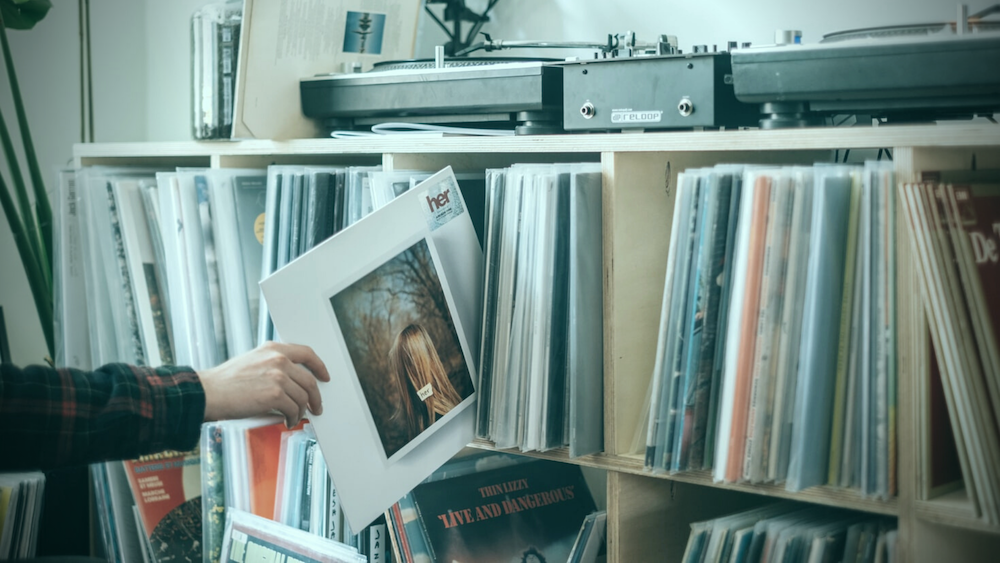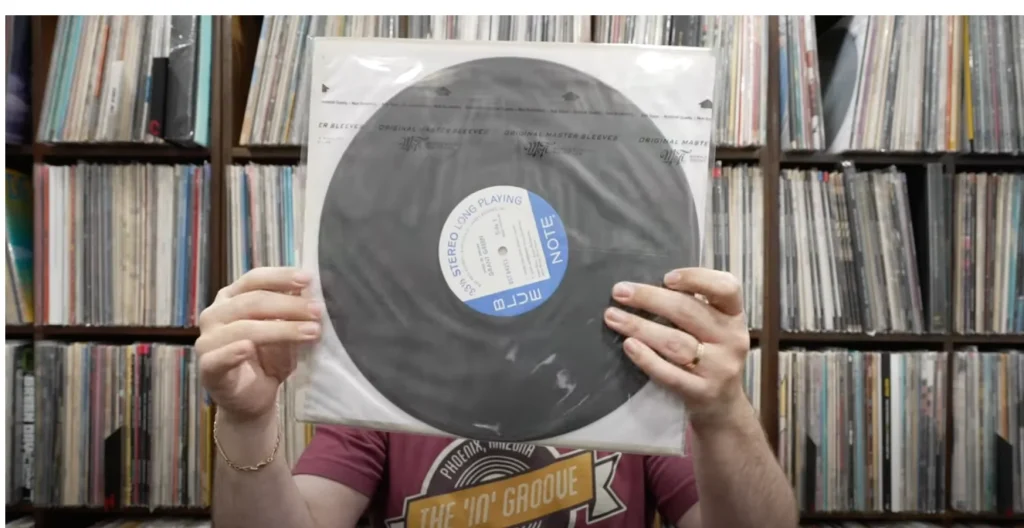How to Properly Store and Care for Your Vinyl Records: The ultimate guide
Vinyl records have made a massive comeback in recent years, and collectors everywhere know that keeping their records in top condition is essential. Proper storage and maintenance not only preserve the sound quality but also protect your investment. Whether you’re a seasoned collector or just starting out, knowing how to store your vinyl records will ensure they last a lifetime.
Why Knowing How to Store Your Vinyl Records is Important
Vinyl records are delicate. Unlike digital formats, they can easily be damaged by dust, heat, humidity, and improper handling. A scratched or warped record won’t just lose its value; it will also result in distorted sound. By following the right storage and cleaning techniques, you can enjoy crisp, high-quality audio for years to come. Learning how to store and care for your vinyl records properly is the best way to ensure they maintain their value and quality.

Best Practices for Storing Your Vinyl Records
Properly learning how to store your vinyl records is one of the most crucial aspects of becoming a record collector.
1. Store Records Vertically
Always store your vinyl records upright. Laying them flat or stacking them can lead to warping due to pressure over time. Use a sturdy record shelf or crate designed to store your vinyl records in an upright position. Proper shelving also prevents records from leaning too much, which could cause them to bend over time. One of the most common storage solutions for those in the community is the Ikea Kallax shelving unit
2. Keep Them in Inner and Outer Sleeves
Vinyl records should always be stored in their original inner sleeves or replaced with anti-static sleeves if the originals are damaged. Outer plastic sleeves provide an additional layer of protection against dust and moisture. Anti-static sleeves also prevent static buildup, which can attract dust and cause unnecessary wear on your records.
3. Maintain a Stable Temperature and Humidity Level
Temperature fluctuations and high humidity can warp records. Ideally, store your collection in a room with a temperature between 65-70°F (18-21°C) and humidity levels of 40-50%. Avoid placing records near radiators, windows, or direct sunlight. High humidity can lead to mold growth, while extreme dryness can make records brittle.
4. Avoid Overcrowding Your Shelf
Cramming records too tightly on a shelf can cause ring wear on album covers and make them difficult to remove. Leave a little space between each record for easy access. If you find your shelf becoming too packed, consider expanding your storage space to avoid unnecessary pressure on your vinyl collection.
Cleaning Your Vinyl Records the Right Way
Keeping records clean is essential for maintaining sound quality. Dust and debris can cause pops and skips while playing. Without writing an entire article on this, here’s a quick guide on cleaning, for a more in-depth guide I have written one here.
1. Use a Carbon Fiber Brush Before and After Playing
Before and after playing a record, gently run a carbon fiber brush over the surface to remove loose dust. Always follow the grooves to prevent damage. Brushing before each play helps keep dirt from embedding into the vinyl.
2. Deep Clean with a Record Cleaning Solution
For a deeper clean, use a vinyl cleaning solution with a microfiber cloth or a dedicated record cleaning machine. Avoid using household cleaners, as they can damage the grooves. If you’re serious about maintaining pristine sound quality, investing in a wet cleaning system is a great long-term solution.
3. Handle Records by the Edges
Never touch the playing surface of a record. Instead, handle it by the edges or the labeled center to prevent oil and dirt from your fingers from getting onto the grooves. Even small amounts of oil from fingerprints can cause dust to accumulate, leading to sound distortion.
4. Use a Stylus Brush to Clean Your Needle
Your turntable’s needle (stylus) collects dust over time. Use a stylus brush or a specialized cleaning solution to keep it free from debris, ensuring better sound quality and longer record life. A clean stylus ensures that it tracks correctly in the grooves without adding unwanted noise.

Protecting Vinyl from External Damage
Vinyl records are highly sensitive to external factors. Here’s how to protect them:
1. Keep Records Away from Direct Sunlight
Sunlight and UV rays can fade album covers and cause records to warp. Store your vinyl records in a cool, shaded area. Keeping records out of direct light will preserve both their appearance and sound quality.
2. Avoid Storing Vinyl in Damp Areas
Basements, attics, and garages often have extreme temperature and humidity changes. Instead, store your records in a climate-controlled room. Mold and mildew thrive in humid environments, which can permanently damage vinyl.
3. Transport Records Carefully
When moving records, always carry them in a protective case. A sturdy, well-padded record case prevents accidental drops and exposure to extreme weather conditions. Vinyl is fragile, and a well-designed carrying case ensures they stay in mint condition during transport.
Turntable Maintenance for Longevity
Taking care of your turntable is just as important as maintaining your records. A poorly maintained turntable can damage vinyl over time.
1. Keep Your Turntable Level
Ensure your turntable sits on a flat, stable surface. Uneven surfaces can cause improper tracking, leading to record wear. If your turntable is not level, it may cause one side of the groove to wear down faster than the other.
2. Replace the Stylus When Needed
A worn-out stylus can damage records. Replace your stylus every 500-1000 hours of playtime, or sooner if you notice audio distortion. A damaged stylus can cause irreversible groove wear, reducing sound quality.
3. Clean the Platter and Slipmat
Dust and debris can accumulate on the platter and slipmat, transferring onto records. Wipe them down regularly to keep everything clean. A well-maintained platter and slipmat reduce static buildup and keep records playing smoothly.
If what I just said didn’t make a whole lot of sense I have also written a guide here on basic turntable components to provide a little more understanding.
Common Mistakes to Avoid
Many collectors unknowingly make mistakes that can harm their records. Here’s what to avoid:
- Using tap water to clean records – Minerals in tap water can leave residue. Always use distilled water or a proper cleaning solution.
- Leaving records on the turntable – Always return records to their sleeves after playing. Leaving them exposed increases the risk of dust buildup and warping.
- Playing dirty records – Dust and debris act like sandpaper, grinding into the grooves and wearing them down over time.
- Using alcohol-based cleaners on records – Some alcohol-based solutions can strip protective coatings from vinyl, causing permanent damage.
Final Thoughts
Taking proper care of your vinyl records ensures they last for decades while maintaining their sound quality. By storing them correctly, keeping them clean, and maintaining your turntable, you can enjoy your collection without worry. Whether you’re a new collector or a seasoned vinyl enthusiast, following these tips will help you protect your investment and keep your records sounding as fresh as the day they were pressed. Learning how to store your vinyl records, as well as care the right way will make all the difference in their longevity.
If you found this guide helpful, be sure to share it with other vinyl lovers! Let us know in the comments what your favorite storage and cleaning tips are.


Leave a Reply
You must be logged in to post a comment.